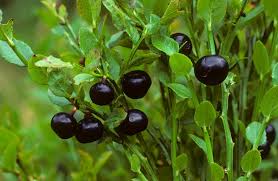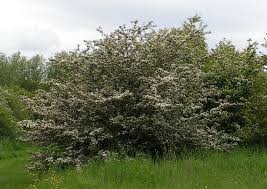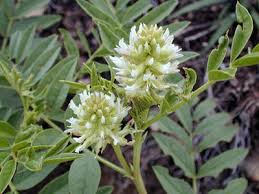1. Aloe vera:

The leaves of this succulent plant exude a soothing gel that is effective when used externally to treat minor burns (including sunburn), cuts, insect bites, and strings. Some herbalists recommend taking the juice internally as a tonic or to treat inflammatory digestive disorders, but there is little research on its internal use.
2. Bilberry:

Bilberry extract is the leading herbal remedy for maintaining healthy vision and treating various eye disorders, including macular degeneration, as well as treating night blindness and poor vision from daytime glare. Bilberry's medicinal properties are derived mainly from one of its major components, anthocyanins, which are powerful antioxidants.
3. Echinacea:

Some preparations made from the purple cone flower can increase immune function and help reduce the severity of viral infections such as the common cold. Studies differ on the effectiveness of echinacea, which is not surprising. There are many species of the plant, and the chemical composition of a product will differ depending on whether the leaves, stems, or root were used in the preparation, and the solvent used. Since it does increase immune function, people with autoimmune diseases such as arthritis, multiple sclerosis, or lupus may react adversely to echinacea.
4. Feverfew:

This herb reduces the frequency and intensity of migraines by preventing the release of prostaglandins, which dilate blood vessels and cause inflammation. Though it is effective as a preventive, it cannot relieve a migraine once it occurs.
5. Ginkgo biloba:

This herbal remedy is said to improve memory problems related to aging. Recent studies show that it does increase blood flow to the brain, as well as to the arms and legs, by regulating the tone and elasticity of blood vessels. Current research is looking at whether ginkgo's ability to prevent blood clots may help prevent heart attacks and stroke. Because it has an anticoagulant effect, ginkgo should not be taken concurrently with "blood thinners".
6. Ginseng:

The Chinese have long used ginseng to strengthen the immune system, alleviate fever and pain, promote wound healing, overcome depression and fatigue, and treat impotence. There is little scientific evidence to back up the claims.
7. Hawthorn:

This herb, used in the past as both a diuretic and a treatment for kidney and bladder stones, is currently one of the most widely prescribed heart remedies in Europe. It can dilate blood vessels, increase the heart's energy supply, and improve its pumping ability.
8. Licorice:

This well studied herb stimulates the adrenal glands, reduces inflammation, and can increase the level of interferon, a virus fighting substance made by the immune system. It is helpful for respiratory problems, coughs and sore throats, and has been used to treat chronic fatigue, fibromyalgia, and other disorders affected by the body's level of cortisol, the main adrenal hormone. High doses can deplete potassium reserves and raise blood pressure (except for the form of licorice called DGL).
9. Milk thistle:

Well known for treatment of liver related disorders, this herb protects the liver from toxins including drugs, poisons, and other chemicals. It may be effective in the treatment of cirrhosis and hepatitis, and can reduce liver damage from excessive alcohol. It can promote the regeneration of healthy, new liver cells.
10. Nettle:

One of the benefits of nettle is its ability to control hay fever symptoms such as nasal congestion and watery eyes. It is a good source of quercetin, a flavonoid that has been shown to inhibit the release of histamine. Nettle acts as a diuretic, so it can help rid the body of excess fluid.
11. St. John's wort:

Used to treat cases of mild depression, it is believed to boost levels of serotonin, which affects mood and emotions. The herb may also be helpful for conditions related to depression, such as anxiety, stress, premenstrual syndrome, fibromyalgia, and insomnia. It can cross react with a number of prescription drugs and reduce their effectiveness.
(Source: Article from Reader's Digest)
The leaves of this succulent plant exude a soothing gel that is effective when used externally to treat minor burns (including sunburn), cuts, insect bites, and strings. Some herbalists recommend taking the juice internally as a tonic or to treat inflammatory digestive disorders, but there is little research on its internal use.
2. Bilberry:
Bilberry extract is the leading herbal remedy for maintaining healthy vision and treating various eye disorders, including macular degeneration, as well as treating night blindness and poor vision from daytime glare. Bilberry's medicinal properties are derived mainly from one of its major components, anthocyanins, which are powerful antioxidants.
3. Echinacea:
Some preparations made from the purple cone flower can increase immune function and help reduce the severity of viral infections such as the common cold. Studies differ on the effectiveness of echinacea, which is not surprising. There are many species of the plant, and the chemical composition of a product will differ depending on whether the leaves, stems, or root were used in the preparation, and the solvent used. Since it does increase immune function, people with autoimmune diseases such as arthritis, multiple sclerosis, or lupus may react adversely to echinacea.
4. Feverfew:
This herb reduces the frequency and intensity of migraines by preventing the release of prostaglandins, which dilate blood vessels and cause inflammation. Though it is effective as a preventive, it cannot relieve a migraine once it occurs.
5. Ginkgo biloba:
This herbal remedy is said to improve memory problems related to aging. Recent studies show that it does increase blood flow to the brain, as well as to the arms and legs, by regulating the tone and elasticity of blood vessels. Current research is looking at whether ginkgo's ability to prevent blood clots may help prevent heart attacks and stroke. Because it has an anticoagulant effect, ginkgo should not be taken concurrently with "blood thinners".
6. Ginseng:
The Chinese have long used ginseng to strengthen the immune system, alleviate fever and pain, promote wound healing, overcome depression and fatigue, and treat impotence. There is little scientific evidence to back up the claims.
7. Hawthorn:
This herb, used in the past as both a diuretic and a treatment for kidney and bladder stones, is currently one of the most widely prescribed heart remedies in Europe. It can dilate blood vessels, increase the heart's energy supply, and improve its pumping ability.
8. Licorice:
This well studied herb stimulates the adrenal glands, reduces inflammation, and can increase the level of interferon, a virus fighting substance made by the immune system. It is helpful for respiratory problems, coughs and sore throats, and has been used to treat chronic fatigue, fibromyalgia, and other disorders affected by the body's level of cortisol, the main adrenal hormone. High doses can deplete potassium reserves and raise blood pressure (except for the form of licorice called DGL).
9. Milk thistle:
Well known for treatment of liver related disorders, this herb protects the liver from toxins including drugs, poisons, and other chemicals. It may be effective in the treatment of cirrhosis and hepatitis, and can reduce liver damage from excessive alcohol. It can promote the regeneration of healthy, new liver cells.
10. Nettle:
One of the benefits of nettle is its ability to control hay fever symptoms such as nasal congestion and watery eyes. It is a good source of quercetin, a flavonoid that has been shown to inhibit the release of histamine. Nettle acts as a diuretic, so it can help rid the body of excess fluid.
11. St. John's wort:
Used to treat cases of mild depression, it is believed to boost levels of serotonin, which affects mood and emotions. The herb may also be helpful for conditions related to depression, such as anxiety, stress, premenstrual syndrome, fibromyalgia, and insomnia. It can cross react with a number of prescription drugs and reduce their effectiveness.
(Source: Article from Reader's Digest)



No comments:
Post a Comment